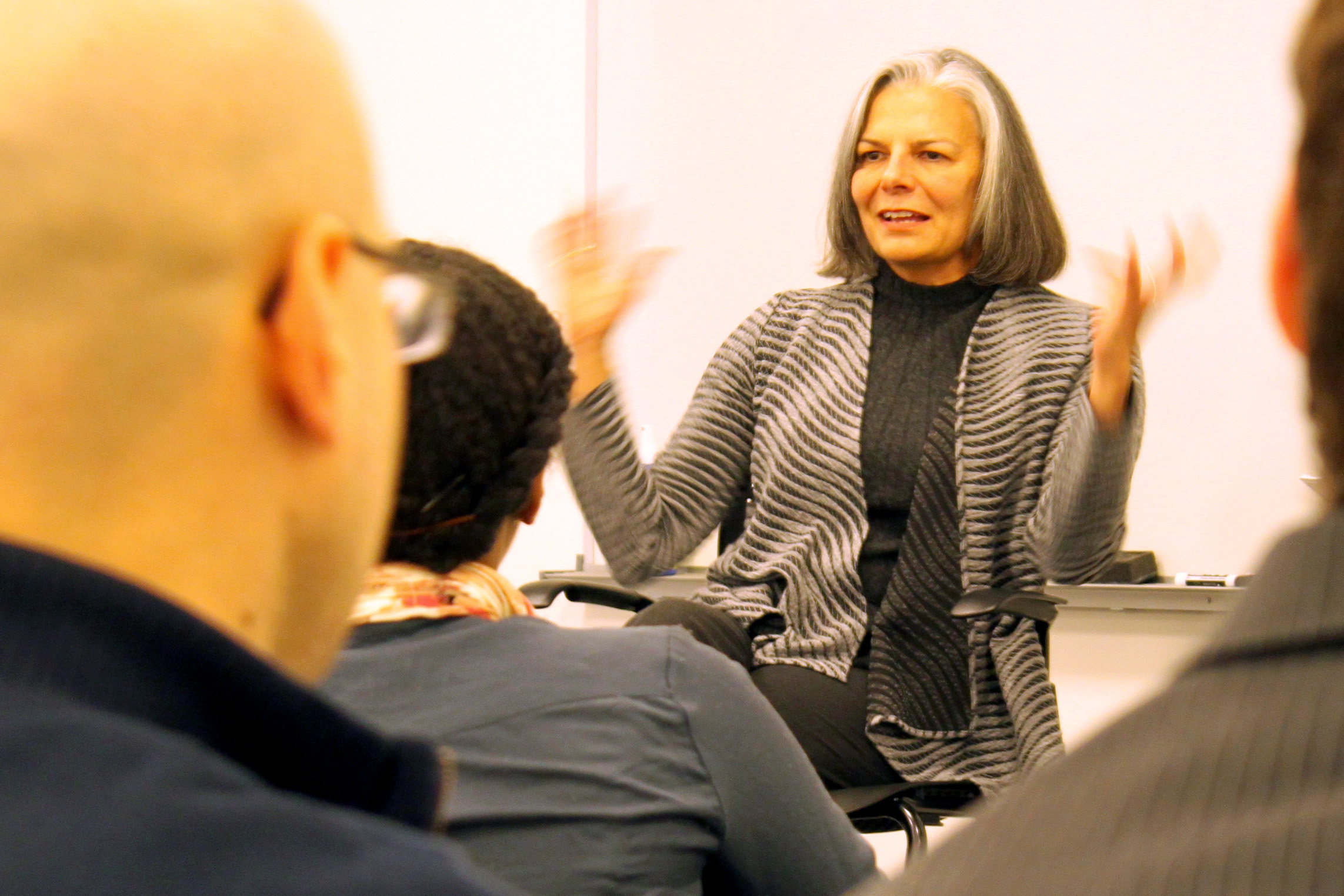7 Lessons for Health Leaders
 Julie Louise Gerberding, MD, MPH, visits the Leadership in Public Health class.
Julie Louise Gerberding, MD, MPH, visits the Leadership in Public Health class.
February 18, 2015
"Each life is equally valuable, each learner is equally vital, and each leader is equally valiant."
Julie Louise Gerberding, MD, MPH
Professor and Dean Emerita Marla Gold, MD, recently introduced former director of the Centers for Disease Control and Prevention, Julie Gerberding, MD, MPH, as a guest speaker in her Leadership in Public Health class, and asked Dr. Gerberding to look back and describe the path that led to her current role as Executive Vice President for Strategic Communications, Global Public Policy and Population Health at Merck.
For the next hour, Dr. Gerberding talked about what she's learned and gave sage advice for the next generation of public health leaders.
Here are seven public health leadership lessons shared by Dr. Gerberding:
- Know and stick to your core values. "Each life is equally valuable, each learner is equally vital, and each leader is equally valiant," said Gerberding. "The decision to go to the pharmaceutical industry was consistent with my core values, especially my belief that each life is equally valuable. At Merck, I had the opportunity to help decrease the incidence of cervical cancer around the world by getting the HPV vaccine to those who need it the most. We've had to overcome several obstacles to improve affordable access, especially in the most economically challenged GAVI countries. One achievement that means a lot to me is the success in Rwanda, where 97 percent of eligible girls have received all three vaccine doses. With effective vaccines, inexpensive screening, and affordable point-of-care treatment for early disease, it is now technically feasible to eliminate cervical cancer on a global basis.
- Strive for your unique impact. When Dr. Gerberding was an intern at UCSF, she took care of the first AIDS patients that crowded hospitals as the epidemic took hold. Healthcare workers were frightened of catching the disease through blood exposures, and Dr. Gerberding focused her contribution on understanding their risks and helping to make care delivery safer for them so that they could concentrate on helping patients.
- Be adaptive and learn as you go. "You will never know everything you wish you could know before you have to make a decision. Use adaptive reasoning. Process the information you have, make the best decision you can, assess the results, and revise your position as new information comes in. It is exactly the process doctors use when treating patients. Question, assess, decide, re-evaluate. Systemically learning from 'after-action reviews' is another important aspect of this. After the anthrax scares [while serving as the director of the CDC], our very thorough after-action reviews helped us learn that we needed more planning, exercises, and greater resource investment. One outcome was that CDC rapidly built a new emergency operation center and got it open in time to handle the SARS outbreak."
- Challenge dogma. "All decisions are based on certain assumptions, but sometimes those assumption are dead wrong. Make the underlying assumptions explicit and challenge their truth."
- Networking is a critical skill (and not just for job-hunting). "The biggest challenges cannot be solved by single persons or even single organizations. Collaboration across networks of people is key. Network leadership is not based on authority but on influence and true collaboration. It takes more time and is messier, but more often than not, differentiates those who succeed from those who fail."
- Plan in a horizontal dimension, but implement decisions vertically. "Engage a 'wise crowd' of diverse people when learning about a problem or considering options for a decision. Once a decision is made however, insist on effective execution by a team with clear lines of responsibility and accountability. Committees usually are not great at actually getting things done.”
- Listen and learn. "Smart leaders do not have the answers. They know how to find, engage, and listen to the people who do."